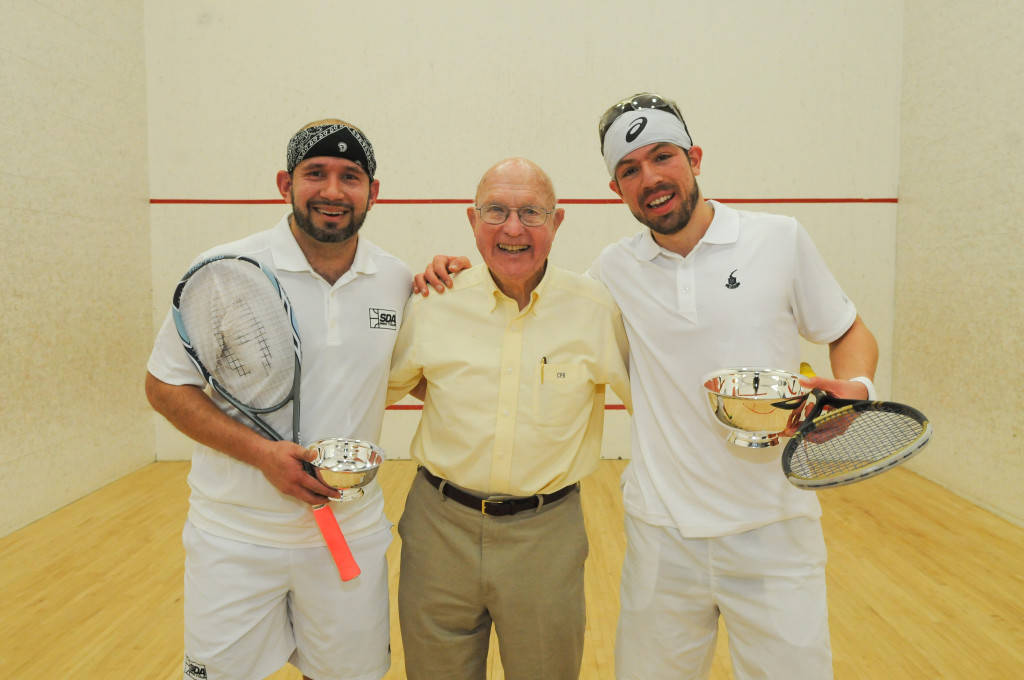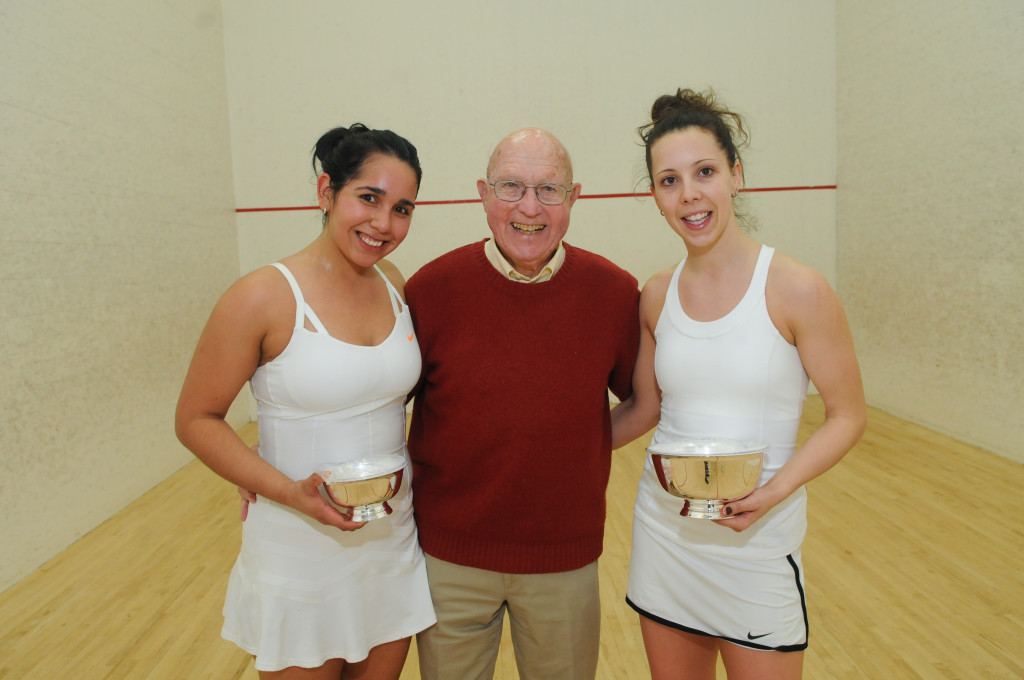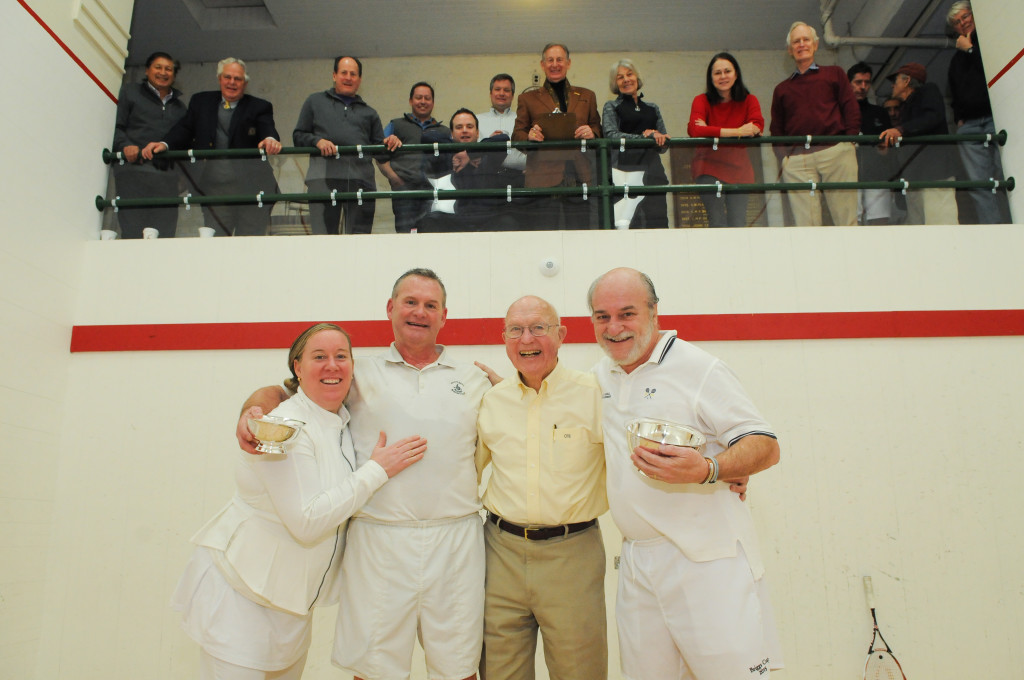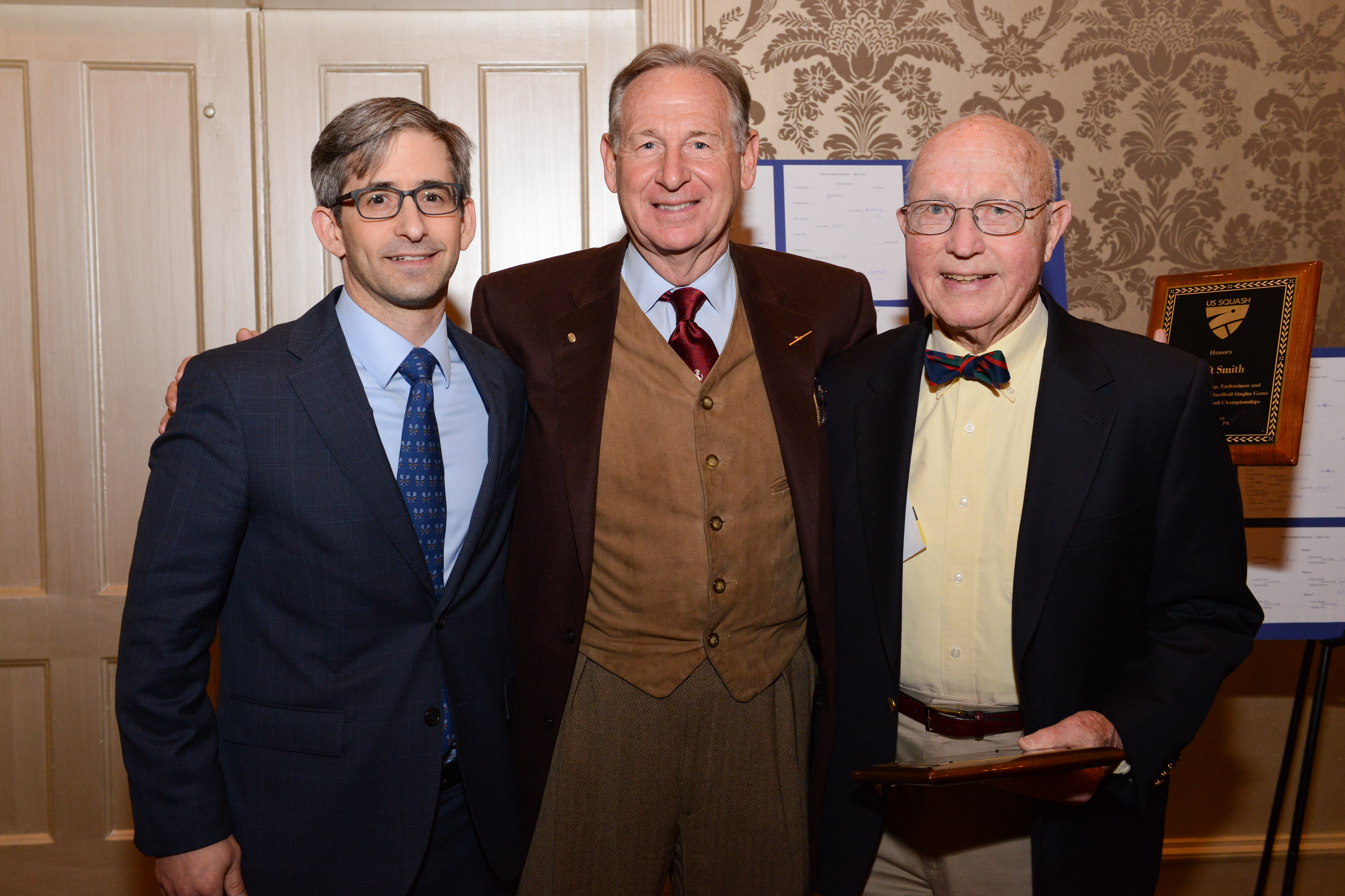
By James Zug
In February, the U.S. National Hardball Singles Championships had a successful farewell as a national championship at Merion Cricket Club. Eighty-one players from around the continent came to Philadelphia to play with the Slazenger fuchsia ball in the eighteen-and-a-half-foot-wide court.
The draws contained some classic hardball names—Davenport, Edwards, Pearson—as well as a lot of newcomers to the old game. Gina Stoker, the former world No.47 who works at Berwyn, and Alicia Rodriguez, the Mexican world No.138, met in the women’s open finals. Stoker won 3-0. It was back in 1994 when a women’s open draw had last been contested. Stoker became the first Englishwoman to win the women’s open tournament since Janet Morgan in 1955. (Stoker also partnered with Ed Garno to capture the Merion Mixed, the doubles tournament, which was also held that weekend.)

Khan, men’s open finalist, Baker and Dane Sharp, men’s open winner.
For the men’s open draw, Dane Sharp followed in the tradition of Merion teaching pros taking the title by coming back from a 0-2 deficit to defeat Imran Khan 15-11 in the fifth. Sharp is the sixth Canadian to win the men’s title, in a line that goes back to Ernie Howard in 1953.
Much of the excellent play was again in the masters draws. In the women’s 40+, Julie Kessler prevented septuagenarian Joyce Davenport from adding to her record haul of national titles by virtue of a decisive victory.
On the men’s side, Harrison Sebring cruised in the 30+. The 40+ and 50+ saw an incredible run by Tom Harrity. Only a few months removed from hip replacement surgery, Harrity squandered a 2-0 lead but outlasted David Ford in five in the finals of the 40+. A few hours later Harrity came back out and topped Joe Purrazella in the 50+ finals, 15-13 in the fourth. (Harrity had also experienced a humdinger with Richard Glanfield in the 50+ semis. Playing in his first hardball event ever, Glanfield had burst to a 2-0 lead and was up 11-10 in the third before Harrity came back.) Harrity’s final total of national titles in hardball singles: seventeen.

open winner Gina Stoker.
In the 60+ Bryce Harding topped Ned Edwards 3-1—it was Edwards’ first appearance in the tournament since he lost in the quarters in Detroit in 1981. In the 60+, the largest draw of the age groups, Palmer Page beat Gary Yeager in the final 3-0. In the 70+ Henry Steinglass escaped with a 3-2 win over Eric Berger. Lucky Young had enough luck to become champion when there was a three-way tie at the end of the round robin. Tournament director Charlie Baker, turning ninety-one this summer, took the 80+ for the sixth time.
It was the fourteenth time since the switch to softball that Merion had hosted the Hardball Singles—and probably the last one. In the spring Merion members will vote on whether to go forward with a planned multi-million dollar renovation at the club. The plan includes the removal of the last three hardball singles courts which date to 1928.

At a gala dinner in the ballroom at Merion, a large, festive group of players and friends celebrated hardball singles. Kevin Klipstein, the President and CEO of US Squash, presented plaques to Baker and Tefft Smith, who have kept the game alive for nearly a quarter century after the switch to softball. Three former open national champions—Ben Heckscher, Harrity and Chris Walker—also spoke about their unique journeys in hardball singles.
This year’s event was the last hardball singles to be an official U.S. national championship. “It has been great to see the passion for hardball singles,” Klipstein said, “and it is now an end of an era. But as Dr. Seuss said, ‘Don’t be sad it is over—smile because it happened.’ We’ve got great memories of a great part of squash history.”


